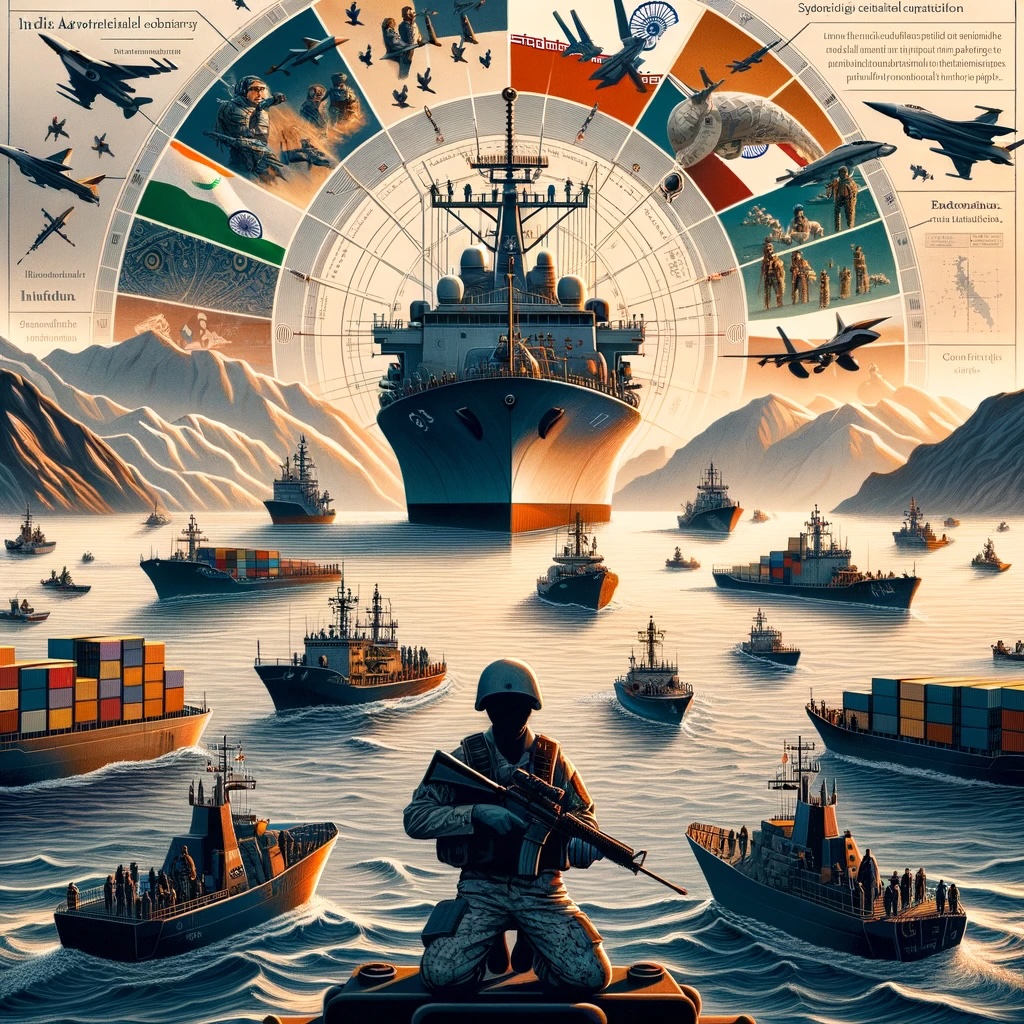India's core maritime security objective, focused on deterring conflict and coercion at sea, faces significant complications due to evolving regional security dynamics.The conflict in West Asia, particularly Israel's war in Gaza, has spilled into the Arabian Sea, impacting freedom of navigation and presenting strategic risks to India's maritime security.
The extension of the conflict involves the Houthis in Yemen conducting raids and drone attacks in support of Israeli-occupied territories, affecting vital sea lanes and supply chains. The US and Iran engage in tit-for-tat actions, seizing critical cargo ships, while international attention grows over the heightened zone of insecurity.

The West Asian security deterioration and its effects on Arabian Sea navigation pose substantial strategic challenges to India's maritime security. Attacks on oil tankers in the Red Sea and Persian Gulf result in dwindling supply rates, impacting India's strategic reserves initiative and diverting major merchants away from traditional routes.
While fishing and mining activities in the Arabian Sea are currently unaffected, the potential for drone strikes and hijackings raises concerns for lives, livelihoods, and operational costs for the Indian Navy. The increasing presence of extra-regional powers in the Indian Ocean further complicates the regional balance of power, entangled in global geopolitical competitions.
India, traditionally a net-security provider, faces new challenges to its maritime security posture. The instability in the Indian Ocean could undermine its equidistant policy, potentially impacting its regional and international standing. Simultaneously, vigilance against rivalrous Chinese activities in the region becomes crucial as India navigates these complex challenges in 2024.
Source: The Eurasia review





